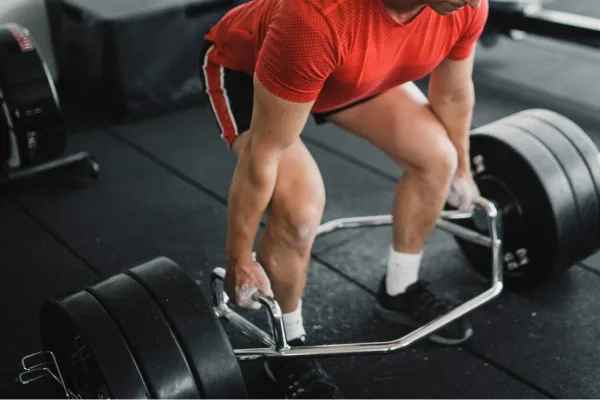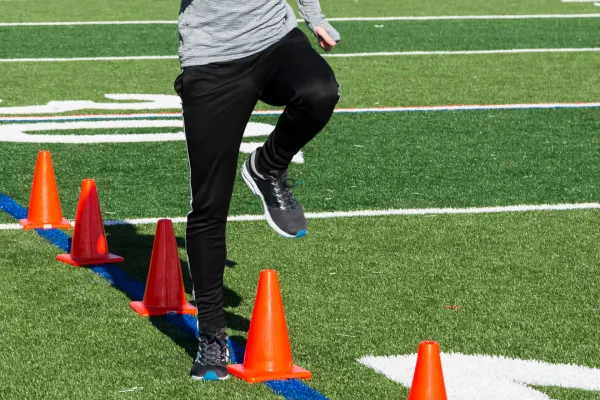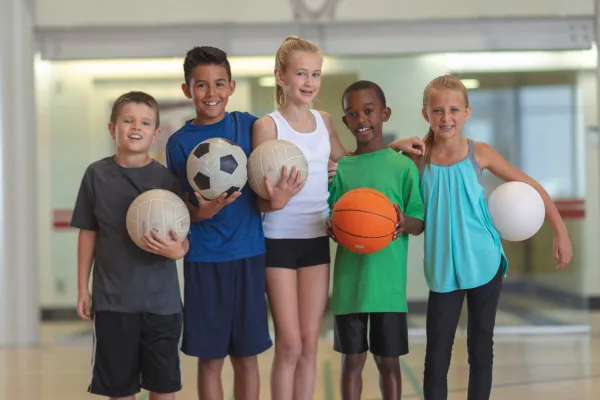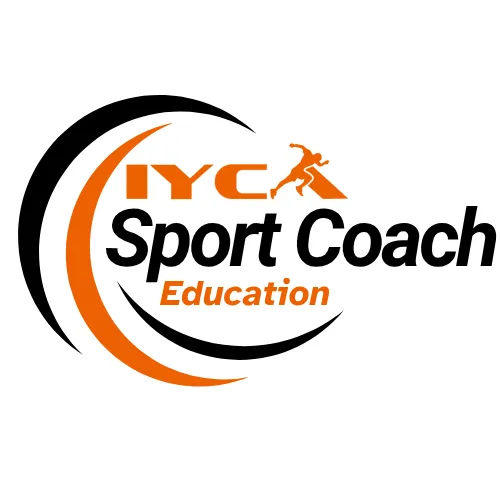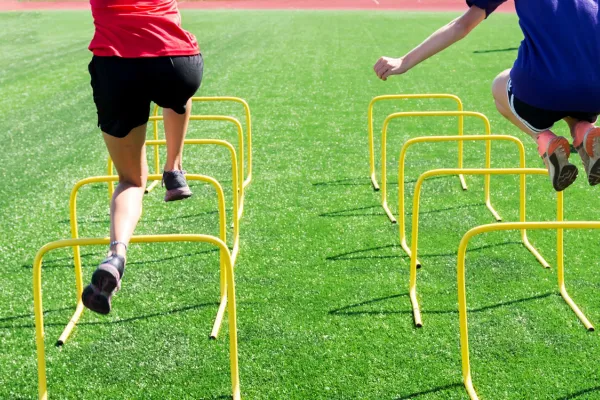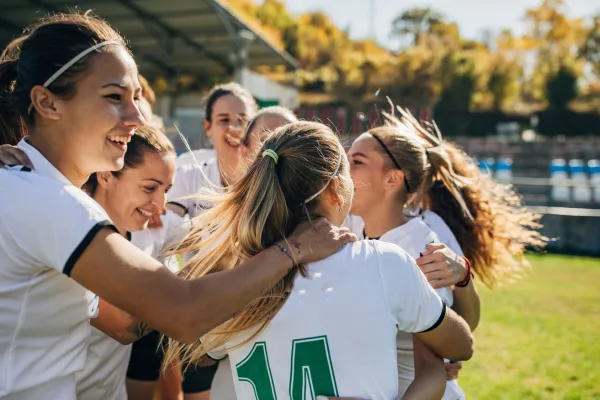
Educated Coaches Shape Future Generations: The Ripple Effect of Coaching Done Well
Almost every athlete can remember that one coach, the one who pushed them, believed in them, and changed the way they saw themselves. The coach who taught them how to lead, how to lose with grace, and how to rise again. Many also remember the coach who yelled, screamed, and sometimes embarrassed them. These emotionally charged coaching relationships are more common than ever, and both shape the future generations.
But behind every coach that becomes a catalyst for a brighter future is something powerful: education, and the ability to translate it to kids. I’m not just talking about being educated in sport, but in human development, in understanding how to teach, motivate, and inspire growth.
As we celebrate Coach Appreciation Month, we honor not only the passion and dedication of coaches but also the educated coaches who are transforming the next generation from the inside out.
Coaching: One of the Most Powerful Roles in Youth Development
Few roles have as profound or lasting an influence on young people as coaching. A great coach is often the bridge between potential and performance, not only athletically, but personally. This doesn’t happen by default, though.
Research consistently shows that the quality of the coaching environment determines much of what young athletes gain from sport. Studies by Fraser-Thomas, Côté, and Deakin (2005) found that well-designed, developmentally appropriate sport programs foster higher self-esteem, resilience, teamwork, and leadership skills.
Conversely, poorly structured environments or uneducated coaching approaches can do the opposite. As you can imagine, these environments are cited for leading to burnout, anxiety, or a negative relationship with sport altogether.
Put simply, the difference isn’t if sport shapes kids. It’s how.
The Evolution of Coaching
Coaching has evolved far beyond strategy, drills, and discipline. Today’s most effective coaches are guided by research in long-term athletic development (LTAD), motor learning, psychology, and youth motivation.
However, you likely don’t need research to tell you that athletes thrive when coaches intentionally focus on positive youth development, building not just physical skills, but social, emotional, and moral competencies.
It’s no secret that educated coaches create safer, more inclusive, and more effective learning environments by understanding:
Stages of youth growth and maturation
The difference between chronological and developmental age
How to foster intrinsic motivation
Communication and feedback strategies that build confidence, not fear
When these principles guide coaching, young people not only perform better, they actually enjoy the process. Enjoyment is a key in keeping them in the game with us!
Educated Coaches Build More Than Athletes
An educated coach doesn’t just teach sport; they teach life through sport.
Studies published in the International Journal of Behavioral Nutrition and Physical Activity (Eime et al., 2013) show that youth involved in quality sport programs demonstrate:
Stronger social connectedness and teamwork
Better emotional regulation
Higher academic persistence
More sustained physical activity into adulthood
But these benefits aren’t automatic; they’re cultivated.
Coaches trained in youth development principles can see each athlete as a whole person, not just a performer. They use sport as a medium to teach responsibility, resilience, and self-awareness.
That’s why education matters. It transforms coaching from ‘instructing’ and ‘winning’ to a game of shaping lives and futures.
The Ripple Effect: Coaching’s Long-Term Impact
When a coach creates a safe and empowering environment, their influence ripples far beyond the season, the stats, or even the scoreboard.
I mean, think about it- I’m assuming you probably have played a game or two in your life? What do you remember about them? Likely not the exact score or your stats. Likely the moments and the lessons.
Athletes who experience transformational coaching tend to carry those lessons into every area of life. They become more confident communicators, understanding leaders, and resilient problem-solvers.
The reality is, most coaches plant seeds they may never see bloom. But the research is clear: those seeds grow.
Why Coaching Education Is the Future of Sport
Sport has never been more complex. Youth athletes are facing increased pressures: early specialization, burnout, mental health challenges, and the rising influence of social comparison.
In this environment, the educated coach becomes the difference-maker.
Education equips coaches with the why behind the what. It helps them align their methods with the latest research, integrate physical and psychological development, and coach in ways that support lifelong participation in sport and movement.
It ensures coaching is not just well-intentioned, but truly effective.
IYCA: Building the Coaches the Future Needs
At the IYCA, we’ve spent decades helping coaches turn passion into purpose, through science, education, and a commitment to youth-centered development. This is and will continute to be our sole focus.
Our certification programs are designed to be practical and applicable, helping sport coaches & performance coaches bring research to life on the field, in the gym, and in every athlete interaction.
Whether you’re a strength coach, sport coach, PE teacher, or youth fitness professional, IYCA certifications teach you to:
Understand long-term athletic development (LTAD)
Coach with empathy, clarity, and intent
Design training and teaching environments that fit developmental needs
Lead with integrity and purpose
Because when we educate the coach, we elevate the athlete — and when we elevate the athlete, we improve the future.
Keep Learning, Keep Leading
As we honor coaches this month, let’s also honor what makes coaching truly powerful, the willingness to learn, to grow, and to make a difference that lasts far beyond sport.
If you’re a coach who believes in that mission, who wants to be part of a movement that’s reshaping what youth coaching can be, the IYCA is here to help.
Join the next generation of educated coaches.
Get certified. Keep growing. Shape the future.
Learn more about IYCA Certifications →
Let’s raise the standard.
Coach Julie Hatfield-Still

About the Author:
Julie is an Author, CEO and Coach. She is the Brand Executive at the IYCA and the President & Founder of the Non-Profit Beyond The Game Alliance, which offers a full suite of workshops and support for teams and individual athletes. In addition to her work as a business consultant and coach of coaches, leaders, and entrepreneurs.
Julie is a Speed Development Specialist and Inner-Game Coach at the college, high school and youth levels.
Visit Julie’s Author Page
Ready to Lead with Confidence, Not Guesswork?
At the IYCA, we believe that coaching is a profession of growth—and high-performing coaches are built on consistent habits, not just good intentions. That’s why we provide practical, athlete-centered education to help coaches at every level develop the skills, systems, and confidence to lead with excellence.
Whether you’re working with youth athletes just learning the game or preparing high schoolers for the next level, the IYCA is here to help you build the habits that matter most, starting with education.
Explore our coaching resources and certification programs: iyca.org
Need help designing a Coach Development System for your school, club, or organization?
Schedule a free consultation—we’ll walk alongside you to create a model that empowers both coaches and athletes.
📧 Email: [email protected]
If this resource sparked reflection or affirmed your mission—don’t stop here.
Get certified with the IYCA and gain the tools, science, and strategies to confidently support long-term athlete development.
Whether you’re working with beginners or elite youth athletes, IYCA certifications & programs are designed to elevate your impact.
Learn more and get certified today:
Certifications
Certified Athletic Development Specialists (CADS)
Certified Speed & Agility Specialist (CSAS)
Youth Nutrition Specialist (YNS)
Youth Athletic Assessment Specialist (YAAS)
High School Strength & Conditioning Specialist (HSSCS)
Because the best coaches never stop learning, and the athletes you serve deserve your best.
References
Fraser-Thomas, J., Côté, J., & Deakin, J. (2005). Youth sport programs: An avenue to foster positive youth development. Physical Education & Sport Pedagogy.



